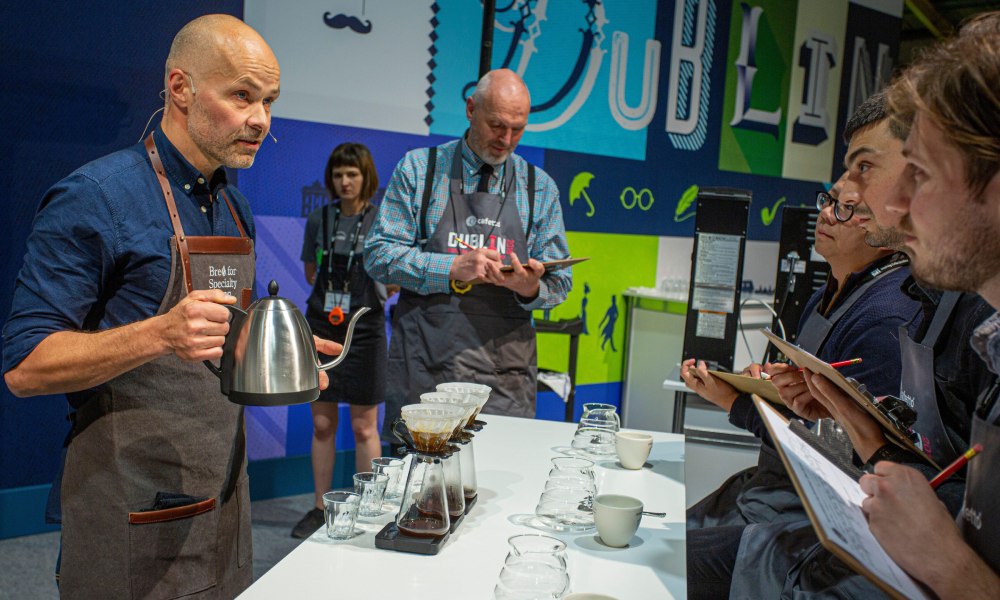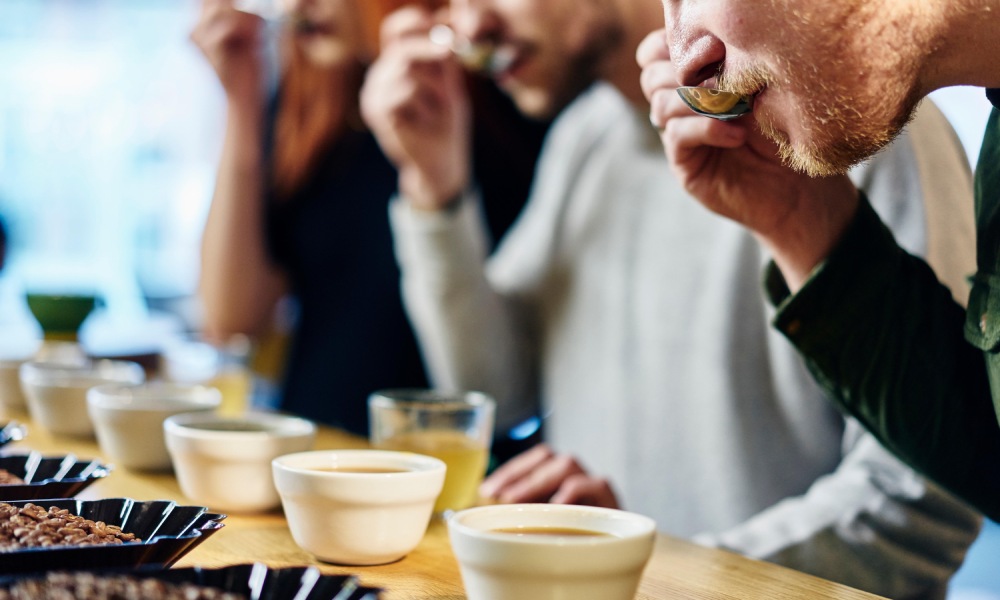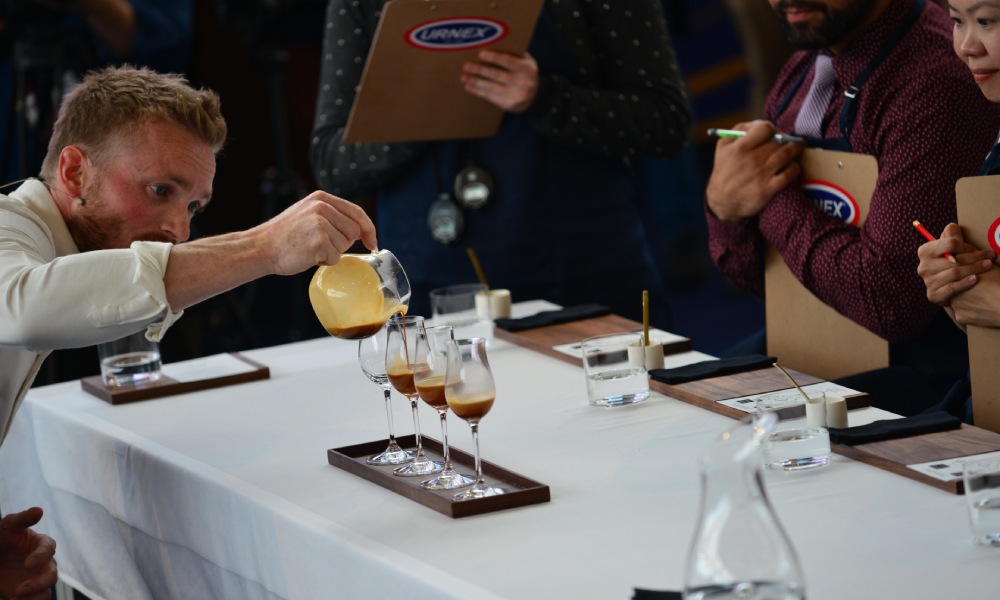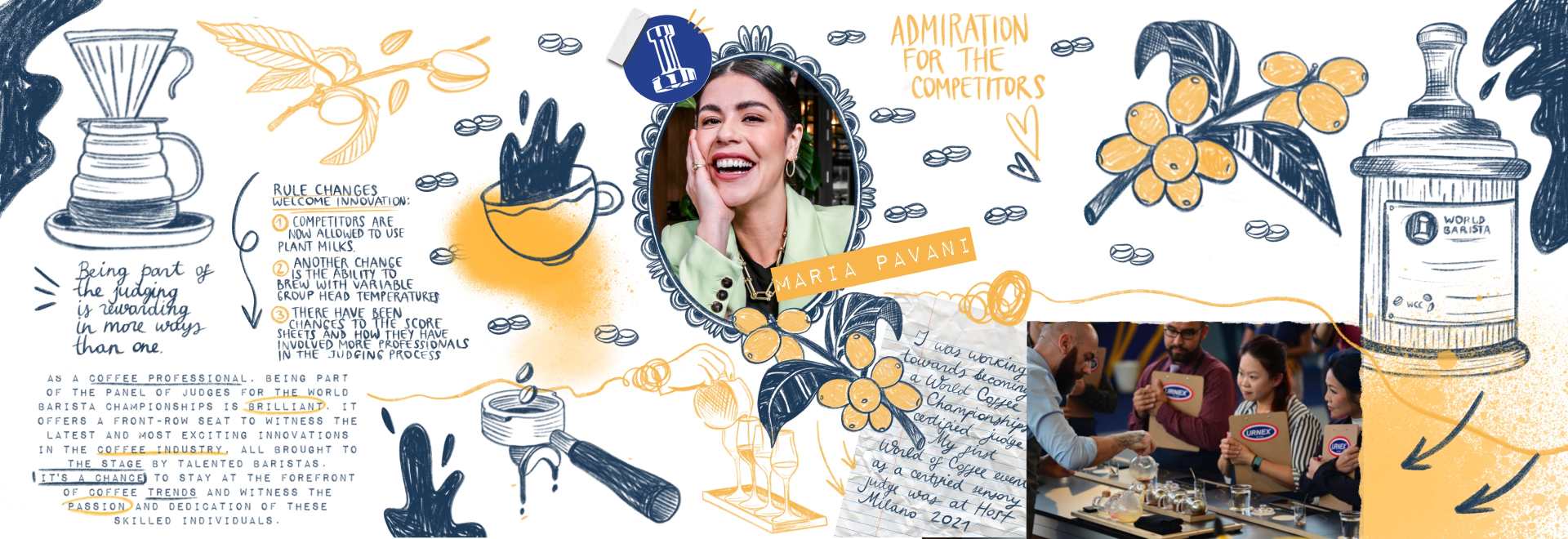Judging coffee competitions can be challenging – but it’s incredibly rewarding
Maria Pavani gives her unique insight into the world of coffee competitions as a WCC-certified judge
I still remember when I started working in the coffee industry.
One of the highlights of being part of the specialty coffee community was following the World of Coffee shows and watching the World Barista Championships – where over 50 of the finest baristas in the world have 15 minutes to prepare four espressos, four milk beverages and four signature drinks, before presenting them to sensory and technical judges.
As the most comprehensive test for a barista’s skills, I was immediately drawn to it.
In 2015, I took the plunge and joined the judges’ panel for our local championship in the UAE. As I stood on that stage, I knew I had found my passion – and that drove me to pursue it further.
I began to invest more time and effort into judging national coffee competitions with each year that passed. Ultimately, I was working towards becoming a World Coffee Championships certified judge.
Becoming certified as a judge was an exercise in patience, and my journey eventually took me to Greece. Over two days, we had to demonstrate our understanding of the skills and knowledge that would be on display at the competitions.
Unfortunately, I did not pass the first time. Undeterred, I then travelled to Russia for my second attempt – which was successful.
My first World of Coffee event as a certified sensory judge was at HostMilano 2021. This was a milestone in my coffee career and something I am very proud of. This year, I travelled to Greece and judged some of the best routines I have ever encountered in my career.

Admiration for the competitors
One of the things that I’ve taken on above all else is admiration – I now treasure the opportunity to witness some of the world’s best baristas at work.
These are dedicated professionals who work year-round. They visit various farms to carefully select their competition-winning coffee. They collaborate closely with a roastery to ensure the roast profile perfectly aligns with where the coffee is from and what we, the judges, are looking for. And in the end, they must continuously hone their presentation – as one misstep can be devastating.
All of this boils down to a 15-minute routine, where they have to present all of their hard work with complete care and precision.
For us, we are looking for an array of qualities – not just in the coffee, but also in their presentation.
We look at flavour profiles, how balanced the coffee is and how it matches up with their explanation. We also look for tactileness (how the coffee feels in the mouth) and, more recently, we assess aftertaste. At the same time, attributes outside the realm of taste can be just as important – how creative was the routine, and was it delivered with professionalism?
In exchange, we – as judges – commit to keeping our skills up to date. We do this through regular training sessions and seminars. We also must pass a calibration test every three years – we get judged, too!

A rewarding job
As a coffee professional, being part of the panel of judges for the World Barista Championships is brilliant. It offers a front-row seat to witness the latest and most exciting innovations in the coffee industry, all brought to the stage by talented baristas.
It’s a chance to stay at the forefront of coffee trends and witness the passion and dedication of these skilled individuals.
Over the past few years, the coffee industry has been a whirlwind of innovation and creativity. I’ve had the privilege of witnessing some remarkable advancements – from groundbreaking ways of processing coffees through fermentation techniques to the emergence of exciting arabica hybrid varieties.
Furthermore, as coffee professionals, being immersed in the latest industry updates gives us an incredible opportunity. We can carry this knowledge back to our home countries, becoming ambassadors for the coffee world’s cutting-edge developments.
By doing so, we have the power to gradually uplift and align our local communities with the global coffee scene.
Being part of the judging community is rewarding in more ways than one. It also opens the door to meeting and connecting with coffee professionals from all corners of the world. These encounters present chances to explore business opportunities and establish valuable connections.

Rule changes welcome innovation
Recently, World Coffee Events has made some interesting changes to the rules. For example, competitors are now allowed to use plant milks in the World Barista Championship. This has opened the door for more experimentation with milk beverages. Indeed, we saw a plant milk used for a signature beverage at this year’s WBC in Athens.
This is just one example of a rule change that opens the doors to greater experimentation. Another exciting change is the ability to brew with variable group head temperatures. This allows competitors to showcase innovative methods in espresso extraction, and offers them another creative space to demonstrate their skills.
Furthermore, there have been changes to the score sheets and how they have involved more professionals in the judging process. The updated score sheets have now been streamlined with four types of scoring and have been developed in line with SCA’s new cupping protocol. In my opinion, it allows us to understand the coffee being presented in a more holistic and complete way.
Not only are these changes exciting, I believe they have made the competition stage more accessible and made it easier to understand how to become a part of the coffee community.
And I hope that it works! I would encourage anyone who would like to become involved in the global coffee community to begin on the journey to becoming a sensory judge – and get ready for some fun!







